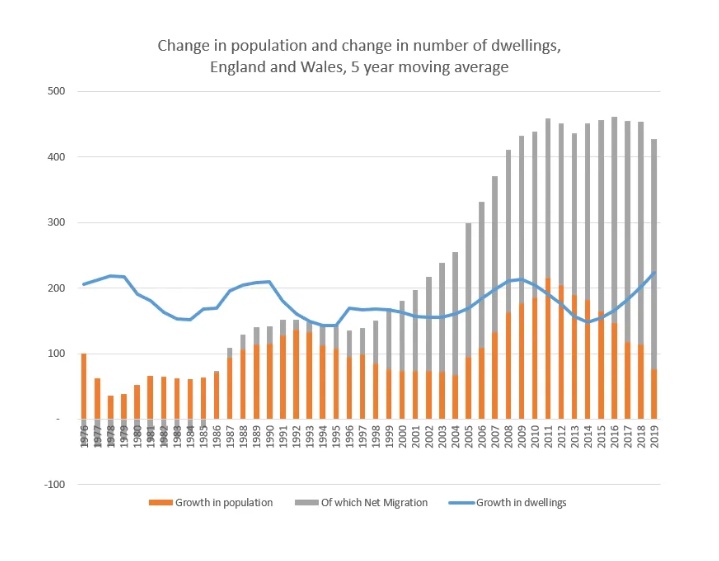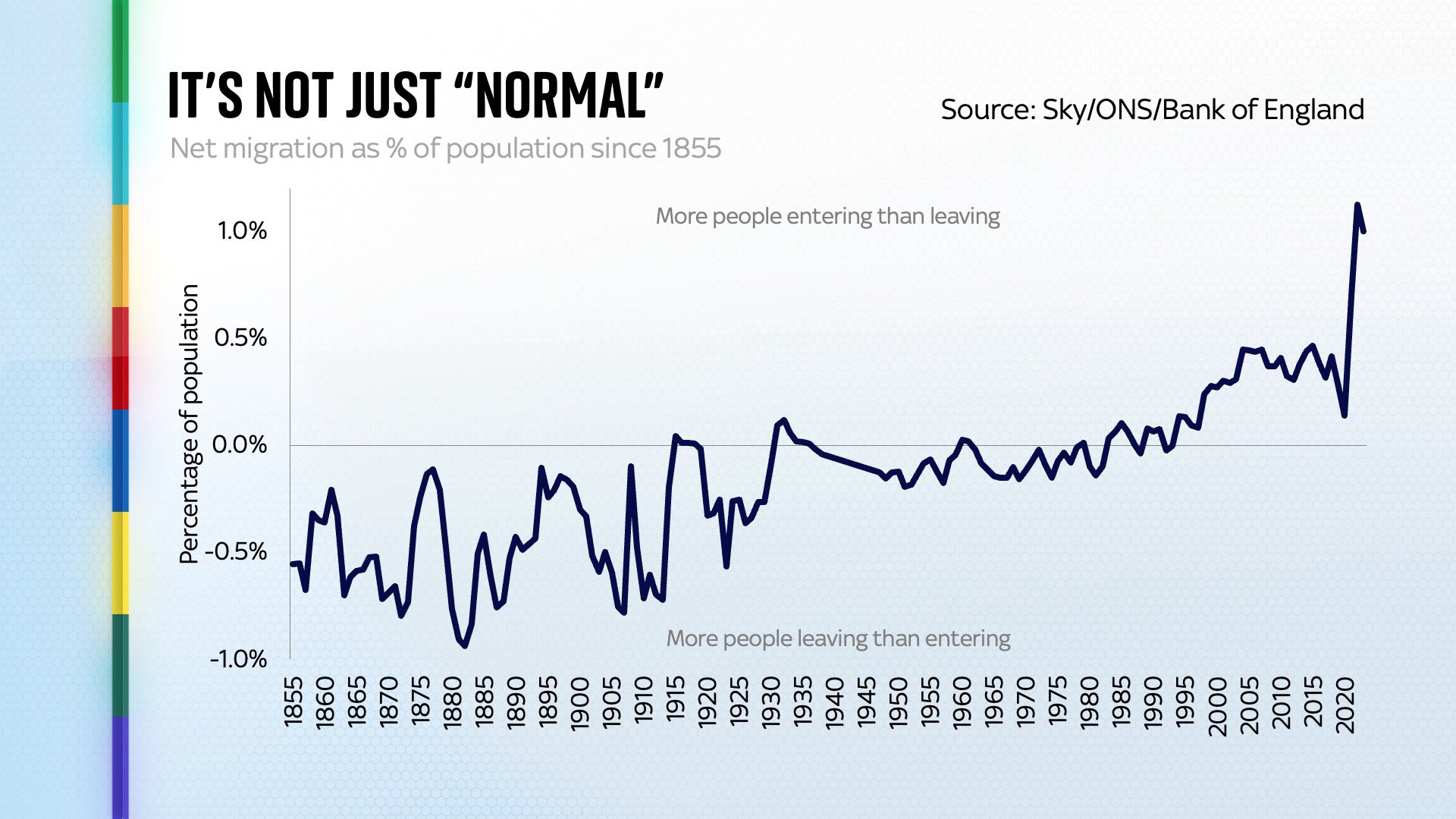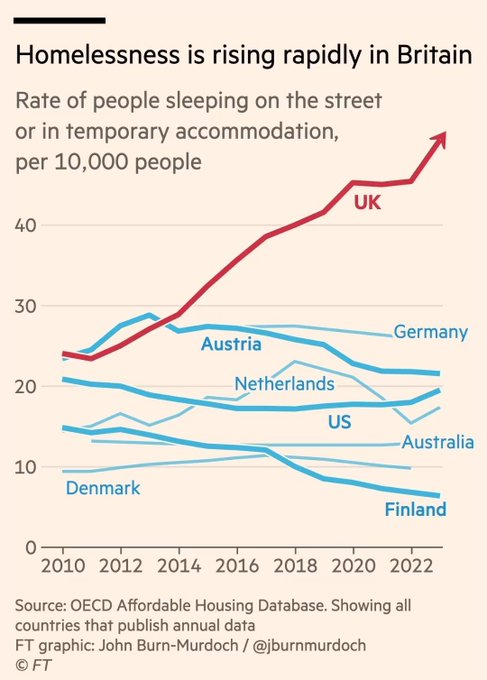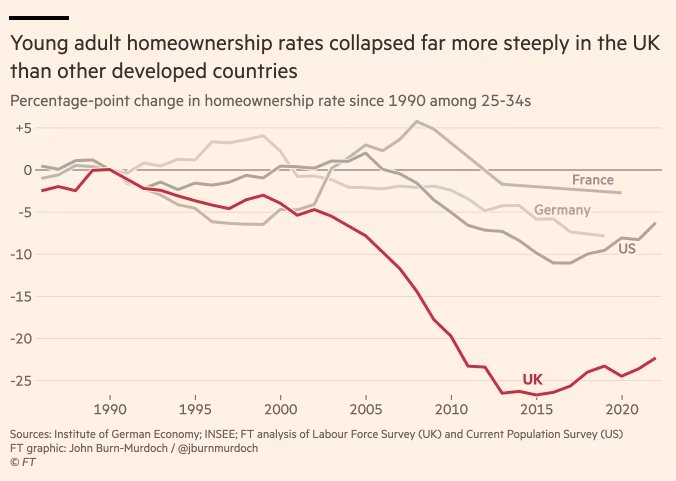Here’s the TLDR: the UK has a housing crisis because it is bringing in way more immigrants than usual and not building way more housing.
(Most of the charts from Simulcrax.)

For a long time Britain was building more housing than it had population increase. This was good, because as anyone who visited England in the 50s or 60s will tell you, it didn’t start with an excess.But starting around 2000AD it increased immigration and didn’t increase how much housing it was building, and after a while that caught up.
The chart only goes till 2019, though. Let’s see what happened afterwards.

Wow. That’s pretty ugly, and hey, it happened under the anti-immigrant Conservative party, and after Brexit, which was supposed to reduce immigration. Anyone wonder why Reform is challenging the Conservatives for second party status?
Now let’s be clear: immigration can be good, bad or mixed. If your economy is doing really well, you have low inequality and high wages and not enough workers and an economy which makes most of what you need domestically, then immigration is going to be good: the immigrants will get good jobs, increase demand and the economy will expand. But if you’ve gotten rid of your industry, have high inequality and an economy which is sucking wind then immigration is going to take jobs from natives and keep wages lower. And if you aren’t building enough housing and don’t do something about that, it’s going to raise housing prices, especially at the bottom and middle, which is going to hurt people.
The people it will hurt most, of course, are:

The chart pretty much speaks for itself. Let’s look at one more chart:
 Ouch. I mean, it’s not like the situation is good in the US, is it?
Ouch. I mean, it’s not like the situation is good in the US, is it?
Let’s be clear about what’s happening: it’s not that the UK can’t reduce immigration, it can, especially post-Brexit. Like Canada, however, it wants to increase GDP and keep wages low, so it’s bringing in as many people as it can, as deliberate government policy and doing so, without a booming economy, is hurting people who already live in Britain.
You don’t have to be racist or xenophobic to believe, accurately, that too much immigration is bad if there isn’t enough housing and jobs to absorb the immigrants. Problem is, given how people are, they will blame the immigrants and become racist and xenophobic, when the correct response is to hate the government and ruling class.
Britain, having deliberately de-industrialized, especially since Thatcher, can’t absorb this many people without causing extreme harm to people already living in Britain, especially if the government doesn’t move, massively, to social housing. People who want less immigration are correct, the only way to absorb this sort of influx without harm would be an entirely different set of government policies, even then, the immigration surge wouldn’t make sense until the policies take effect.
Unfortunately the only chance of pursuing anything like those policies was to elect Corbyn, and that chance has passed.
The sun always sets, and now it sets on Britain.
Addendum: Stumbled on this after writing the article.
He continues: “According to the Government’s own methodology, we needed to expand the housing stock by around 3.4 million homes over the last decade: 2.2 million to meet existing housing pressures, and 1.2 million to cope with net migration. We increased the number of homes by only 2.1 million.”
So, without immigration, they’d only be down 100,000 over the last twent years, rather than 1.3 million.
